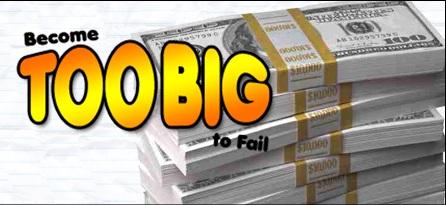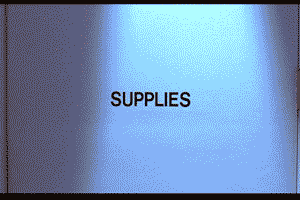Anarchy in The UK! The Sex Pistols Are Yet to Claim Responsibility
There are riots in the UK causing quite a bit of "disorder". The interesting part is when a few of the looters were questioned by the BBC's Leana Hosea.
Two girls who took part in Monday night's riots in Croydon have boasted that they were showing police and "the rich" that "we can do what we want".
The pair who were drinking wine looted from a local shop at 09:30 BST on Tuesday morning, spoke to the BBC's Leana Hosea.
I don't know about you but I've never had an issue with someone who is "rich" stopping me from doing anything and the police (if stopping people) are usually preventing unlawful activity. I'm not quite catching on to what it is that they have a problem with. Who are these rich people telling them what they can and can't do? What exactly are the police stopping them from doing?
In the video the two women go on to say...
PROTESTERS: Its the government's fault...Conservatives. It's not even a riot. It's showing the police we can do what we want. That's what it's all about. it's about showing the police we can do what we want and now we have.
BBC: Do you reckon it will go on tonight?
PROTESTERS: Definitely...hopefully.
BBC: But these are like local people. Why are you targeting local people...your own people?
PROTESTERS: It's the rich people. It's the people who have businesses and that's why all of this has happened, because of the rich people.
There are plenty of people with businesses that aren't rich. I think the answer is that the "rich" people are not giving away their property and the police are trying to keep looters from taking it.
This is what happens when the government educates children and tells them that they are "owed" certain things. Once someone starts believing that it's OK for the government to take from some to give to others; it's not long before the recipients start taking from others. It's the illogical nature of a nanny state --followed to its logical conclusion.
This reminds me of a 90s flick "SLC Punk".
To be an anarchist in Salt Lake City was certainly no easy task, especially in 1985. And having no money, no job, no plans for the future, the true anarchist position was in itself a strenuous job.
This scene is coming to a town near you sooner than you imagine.
Note: You DO NOT need to register to leave a comment.
Follow The WindUpRubberFinger on Twitter!
Too Big To Fail, or Too Big To Function?
Is the US government "Too Big To Fail?"
As I see it, Too Big to Fail means "Too Big to Function" I think the term was coined to encompass a situation where poor decisions land an abnormally large group of people in a bad situation. The answer (at least so far) has been for the government to make certain economic concessions to benefit failed companies. With this type of system in place there is absolutely no incentive for the heads of business to asses risk because the government is already committed to propping the company up regardless of how the business is run. No free economic model can function without risk.
It seems, as was the case with General Motors, that there is a belief that once an entity becomes large enough it will heal itself. There is this belief, before the time of collapse, that "There's someone for that", "There's someone who can fix that", or "They wouldn't do something that would run us into the ground." Of course, this is all based on the belief that those at the top are competent and honest. In government, like in large businesses, people are only held accountable for a limited amount of time. There seems to be a culture of getting what you can while you're there, and letting the next guy deal with it.
Right now our government is operating in this manor. There is little to no risk for politicians who make poor economic decisions. Most people are either too far removed from the issue, or don't even hear about it. Thank the major legacy news outlets for that.
We are in the situation we are because the government has inserted itself in the economy to the extent that arbitrary government actions have a greater economic effect than organic market forces. Once this happens it is nearly impossible for the market to correct. But it seems that the government is quickly loosing its ability to prop up the system. The real crash is coming, until that happens there will be no "recovery."
The US is not too big to fail.
Note: You DO NOT need to register to leave a comment.
Follow The WindUpRubberFinger on Twitter!
Planned Obsolescence
It's already starting; Moodys is starting to point to a downgrade in the US "AAA" bond rating. Strange considering that borrowing more was supposed to fix the credit problem. The US is starting to operate a lot like General Motors. The government has made promises without the financial backing to realize them. Also like General Motors the government has borrowed to uphold current obligations. The key ingredient to the analogy is the fact that both the US and General Motors made economic moves which weakened their ability to gain future revenues. The end result; you'll see...
The outlook for the U.S. grade is now negative, Moody’s said in a statement yesterday after President Barack Obama signed into law a plan to lift the nation’s borrowing limit and cut spending following months of wrangling between Democratic leaders and Republican lawmakers.
But Obama said that we had to increase the debt limit to avoid crisis!? I don't think that the debt ceiling was ever the issue; in fact it wasn't --spending is. The day after the debt ceiling was raised the National Debt exceeded GDP.
US debt shot up $238 billion to reach 100 percent of gross domestic project after the government's debt ceiling was lifted, Treasury figures showed Wednesday.
Treasury borrowing jumped Tuesday, the data showed, immediately after President Barack Obama signed into law an increase in the debt ceiling as the country's spending commitments reached a breaking point and it threatened to default on its debt.
This, of course, flies in the face of everything Obama said. All of the panic, all of the chaos, was fabricated. The sheer fact that the debt ceiling would be increased was proof enough that the US is not going to make good on its debt. Everyone knows that in real-world terms the debt ceiling makes no logical sense, because it's not based on ability to repay! In the real world debt limits mean nothing, the ability to pay does. Once the National Debt surpassed GDP it was all over. I'm no economist, but I don't loan money to people who can never pay me back --it's not a loan at that point.
The Republicans dropped the ball. They did help to focus the debate on the debt ceiling, but they led a half-ass effort to stop the increase. Republicans finally got the attention they were looking for and at the highest point of visibility (publicly) they dropped the ball.
I'm starting to think that we do need a third party. If the Republicans can't hold the line when nearly all of the polling data shows that Americans back their position, how are they going to hold the line at any other point!?
This "disaster" is fabricated, the economy is being broken down on purpose. If I can see the writing on the wall don't you think that the most influential people in the world can as well?
Note: You DO NOT need to register to leave a comment.
Follow The WindUpRubberFinger on Twitter!
Egypt is Falling to Islamists; Where is the US Media?
It's interesting that when Egypt is in real trouble there is nothing on the front page of US newspapers, but the blog section of the New York Times has insight. This is a very important development. Remember we had the President of The United States saying that Hosni Mubarak had to step down so that the Egyptian people could determine their future. Well that has happened and what do we see now?
As my colleague Anthony Shadid reports, tens of thousands of Egyptians poured into Tahrir Square on Friday for a day that had been billed as one of unified protest against the interim military government. But the turnout was lopsided, dominated by members of religious movements, ranging from the most conservative, the Salafists, to the relatively moderate Muslim Brotherhood.
According to The Associated Press, instead of chanting “The people want to topple the regime,” a slogan heard at protests across the Arab world this year, from Tahrir Square to Tunisia, demonstrators called out, “The people want to implement Sharia,” a strict code of Islamic law.
I thought these protests were carried out by people who want freedom? I thought that Islamists were nowhere to be seen during the Egyptian protests, that's what we were told. Now all of a sudden the people everyone was worried about are right there in the middle of it.
I predicted this in May of this year. Why would anyone actually believe that in a majority Muslim country there would be a "revolution" and no involvement by Islamnists?
It is likely that the most organized group will gain control of whatever government eventually manifests itself. The Muslim Brotherhood has been waiting for an opportunity like this for many years. Now it's time for them to act. Pay close attention to Egypt in the coming weeks.
Free thinking people are unlikely to organize and create a system of government. For Islamists the job is easy, their religion is a form of government; they just have to implement it.
Note: You DO NOT need to register to leave a comment.
Follow The WindUpRubberFinger on Twitter!
Obama Needs A Dance Partner Because The U.S. Constitution Turned Him Down
Obama wishes his policies were easier to mandate.
I have known for quite some time that Obama takes issue with the fact that laws limit our government. I just never thought that he would come out and say as much.
Obama Would Radically Rework the Constitution
A 2001 interview of Sen. Barack Obama saying some pretty remarkable things about what he sees as the inadequacy of our Constitution has recently come to light. They go to the core of what this election is about and, even more fundamentally, what America is and may be.
Obama in his interview disparages the Constitution as merely "a charter of negative liberties. It says what the states can't do to you. Says what the federal government can't do to you but doesn't say what the federal government or state government must do on your behalf." He believes—and he's right—that changing this is the way to bring about "redistributive change."
But the founders were deeply purposeful and intellectually coherent in their definition of rights. Classically, rights are the lowest, most basic universal claims. Think of them as the ground rules for everyone, weak and strong, to respect each other and get on.
This way of thinking might be confusing to some people, but you have to understand Obama's frame of mind. He doesn't look a The Constitution as a document from the aspect of We The People, he looks at it from the aspect of the government ruling its subjects. That's where the disconnect is. The left has no respect for The Constitution, because it does exactly what it's supposed to do, LIMIT THEIR POWER.
Many people disregard these things and just claim it's a wish list for Obama or whatever leftist is in power. What they don't understand is that this is the core belief of ALL LEFTISTS. This belief doesn't go away with the person at the time. The next leftist person will be working towards the same goal, and so on.
These beliefs were again echoed by Obama on the subject of immigration reform.
America's immigration system is broken, but only a bipartisan political movement can fix it, President Barack Obama said Monday.
"The idea of doing things on my own is very tempting, I promise you, not just on immigration reform. But that's not how our system works. That's not how our democracy functions," Obama told the National Council of La Raza.
Speaking at the organization's annual conference in Washington, Obama said passing immigration reform measures will require support from both sides of the aisle in Congress.
"Let's be honest, I need a dance partner here, and the floor is empty," he said.
The President of The United States recites an oath to uphold the Constitution of The United States.
Each president recites the following oath, in accordance with Article II, Section I of the U.S. Constitution:
"I do solemnly swear (or affirm) that I will faithfully execute the office of President of the United States, and will to the best of my ability, preserve, protect and defend the Constitution of the United States."
Why would Obama take an oath to "preserve, protect and defend the Constitution of the United States" if he takes issue with it? Obama and the Democrats have been openly at odds with the US Constitution ever since Obama took the oath of office. Most of the major legislation to be passed as part of Obama's agenda had to be structured to circumvent the US Constitution, not abide by it.
The first oath administered on January 20, 2009 was administered incorrectly. The oath was again administered on January 21, 2009 in the Map Room at the White House. The second time there was no Bible present.
After constitutional law experts questioned the validity of his swearing-in because of a fluffed line in the oath of office, Mr Obama moved quickly to quash speculation that his presidency was in any way illegitimate.
John Roberts, the Chief Justice charged who helped bungle the oath on Tuesday, was summoned to the White House and, in front of a small pool of reporters, Mr Obama carefully and accurately repeated the 35-word oath prescribed by Article 2 of the Constitution.
The problem was, no-one thought to bring a Bible and Mr Obama decided to go ahead without one.
Maybe it's just me, but I would have waited for a Bible to be brought in.
Only history will tell if the oath was taken seriously by Obama.
Note: You DO NOT need to register to leave a comment.
Follow The WindUpRubberFinger on Twitter!




